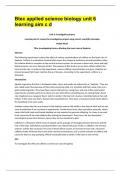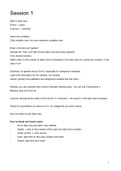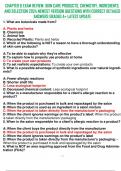Examen
Btec applied science biology unit 6 learning aim c d Unit 6: investigative project Learning aim D: review the investigative project using correct scientific principles
- Cours
- Établissement
Btec applied science biology unit 6 learning aim c d Unit 6: investigative project Learning aim D: review the investigative project using correct scientific principles Mahdi Noori Title: Investigating factors affecting the heart rate of Daphnia Abstract The following experiment is about th...
[Montrer plus]












